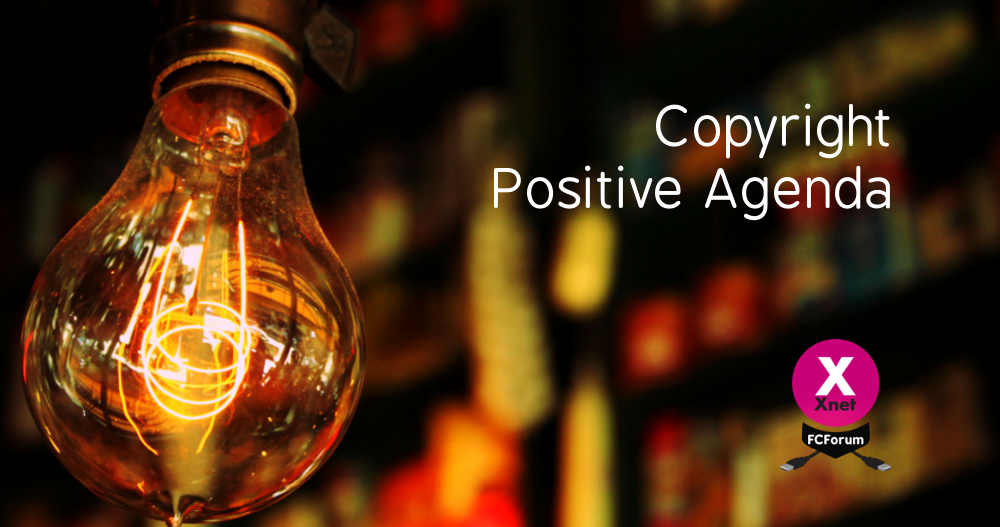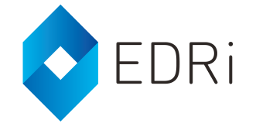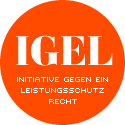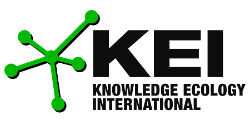We are in the midst of a revolution in the way that knowledge and culture are created, accessed and transformed. Citizens, artists and consumers are no longer powerless and isolated in the face of the content production and distribution industries: now individuals across many different spheres collaborate, participate and decide in a direct and democratic way.
Since its beginning in 2009, the Free Culture Forum brought together key organisations and active voices in the free culture and knowledge terrain under a single roof, acting as a meeting point to find answers to the pressing questions behind the present paradigm shift.
The FCForum has drawn up proposals to present the position of civil society on the privatisation of culture and information, the role of the government in granting access to knowledge, on the creation and distribution of art and culture, which are collected in the Charter for Innovation, Creativity and Access to Knowledge (2009) [1] and the proposals for Sustainable models for Creativity in the Digital Era (2010) [2] and which we will use as basis to go further.
We are in favour of copyright rules that are balanced and fair to everyone, including authors. However the current copyright regime does not offer protection to the authors but to the industry. Right now enforcement is only focused on the interests of the industry not on the interests of the authors and users. Aspects of more concern to individual authors, such as moral rights, are neglected.
# STATE OF AFFAIRS
European copyright rules about the information society date back to 1991. Needless to say that these rules, written before Youtube, WordPress and Twitter, are outdated and not fitted to the digital explosion and the Internet era. There is an obvious need to modernise and reform copyright rules and civil groups are working to address the issue [3].
European Commission will propose a text for a new EU copyright norm likely in Spring 2016. Yet, on its Communication on a new framework for a “modern, more European copyright” (09/12/2015) [4], the Commission makes it clear that it is not able or it is not willing to be equal to the task of launching a real reform for the broken and outdated EU copyright framework, losing this important opportunity [5] [6].
The Commission seems to be willing to settle for minimal and not very controversial reforms, most of them already discussed in Reda’s Report:
- Adding an exception for Text and Data Mining, though only for research organizations and research purposes
- “Easing” the digitalisation of out-of-commerce collections for heritage institutions to make them more available
- Clarifying the exception for Freedom of Panorama
- Face some aspects of Geo-blocking
On the other hand, the communication seems to thinly open the doors back to proposals that threaten the right to link and thus the internet as we know it today:
- Ancillary copyright for press publishers
- Make hosting providers liable for copyrighted content upload by the users
On IPR enforcement the commission reaffirms its intention to apply a “follow the money” approach and to ratchet up some of the existing enforcement rules.
BACKGROUND TO THE REFORM
Previous to the Commission’s forthcoming proposal on Copyright Reform, there have been two main European Union initiatives with regard to copyright .The first one, revision of the Infosoc Directive, needs to be supported by more ambitious requests to fairly update copyright rules in a context of high pressure from the IP lobbies. The second one, on IPR enforcement, is clearly inadequate.
Even though Reda’s and Svodaba’s reports are not legally binding, they form the basis of the Parliament’s approach for future legislative proposals and will be taken into consideration on future copyright legislation proposals by the Commission.
# Julia Reda’s evaluation of the 2001 Infosoc Directive
Non-binding non-legal resolution – adopted on July 9th, 2015 [7].
We consider the report very interesting but not ambitious enough and some may consider it a big lost opportunity to advance in the direction of achieving a real up to date, balanced and adapted to the digital era copyright reform. Nevertheless, Reda’s report has many positive outcomes and victories that have set the basis to prevent future attempts to limit civil rights based on copyright [8].
The evaluation analyses a Directive which contains core elements of EU copyright law, including exceptions and limitations when using copyrighted material.
Attempts to limit users rights prevented (all them introduced in the amendments)
- Limit Freedom of Panorama to ‘non-commercial uses’ (refused; thanks to, in great part, the campaign launched by Wikipedia)
- No right to link (refused; seeked to make online users liable for links to ‘illicit content’)
- European Ancilliary copyright for press publishers (refused; probably on the basis that countries where it has been implemented, Germany and Spain, are not having positive results [9])
Positive proposals
- Calls on Commission to work on minimum standards on exceptions and limitations in the EU
- Recognize the need to allow Text and Data Mining (TDM).
- Cultural institutions like libraries, archives and museums should be allowed to digitalise their collections to be shared online
- Protect Public domain: call for a legal definition, to ensure that once a work is in the public domain, any digitisation of the work which does not constitute a new, transformative work, stays in the public domain (eg: digitalisation does not create new rights over it), and for the possibility for authors to put their work in the public domain
- Prevent geoblocking practices to ensure that citizens have access to online services regardless of where they are in the EU
Missed opportunities
- The chance to harmonise users’ rights on the rise in Europe (exceptions and limitations)
- Exceptions and limitations are not requested to be made mandatory in the member states (not even the common ones)
- No recognition of freedom of panorana as an exception
- No introduction of an open norm allowing case by case exceptions to copyright when needed in addition to the limited list of possible exceptions in the directive
- A lot of bad language about ISPs liability was introduced in the report
# Pavel Svodaba report on IPR enforcement
Non-binding non-legal resolution adopted on June 9th, 2015 [10].
The resolution calls on the Commission to enforce IPR on “commercial scale” infringements adopting a ‘follow the money’ approach.
“Follow the money” is an enforcement strategy that aims to cut the financial sources of Internet sites containing copyright protected contents. This is achieved by elaborating a list of allegedly copyright infringing websites and passing it to search engines like Google to put them out of their search results, and to advertisement companies for them to remove the ads from the websites listed.
The process is much easier for both authorities and companies, for it prevents them from having to face accusations of undermining freedom of expression.
The first problem with this resolution is the repressive approach. Secondly the “follow the money” approach has not even been defined in the European legal framework.
We oppose this approximation which is performed without any judicial order and is a clear example of privatised law enforcement. It is also not clear how websites listed can make changes and take measures to be removed from the list.
Svodaba’s report praises the generally lamentable work of the Observatory on IPR infringements [11]. Taking into consideration the numerous flaws of much of the output of the Observatory, the calls to use its work to build upon it a new “Intellectual Property” legal framework, seems misplaced and ill-informed to say the least.
The calls for “cooperation” of the main Internet stakeholders sounds too much like the same old call to privatised law enforcement on the basis of the undefined concept of “follow the money”.
ISSUES THAT NEED OUR ACTIVE ENGAGMENT
# ANCILLARY COPYRIGHT
Ancillary copyright for press publishers supposes that short snippets of news made available by news aggregators and web search engines are subjected to copyright and fees must be paid to the publishers for displaying them. It is often referred to as “Google tax” (in Spain also called “#CanonAEDE”) [12].
Ancillary copyright for press publishers obstructs innovation and the freedom of information and communication. Instead it fosters market concentration in the press and the online economy.
The quotation right is a required exception [13], and its scope regulated by Article 10(1) of the Berne Convention:
“It shall be permissible to make quotations from a work which has already been lawfully made available to the public, provided that their making is compatible with fair practice, and their extent does not exceed that justified by the purpose, including quotations from newspaper articles and periodicals in the form of press summaries.” Also relevant is Article 2(8) of the Berne Convention, which provides that copyright “shall not apply to news of the day or to miscellaneous facts having the character of mere items of press information.”
The refusal by the European Parliament of the amendment that seeked to introduce ancillary copyright in the Reda’s report sets a good ground to oppose it may it be reintroduced in the forthcoming copyright reform. There is also plenty of evidence of the harm caused by the existing ancillary copyright in the member states [14].
In Spain Google closed its “Google News” services and press publishers are not only not getting any money from it, but also suffering a decrease of traffic in their sites of up to 14%. In Germany many press publishers are voluntarily asking to be removed from the sites “benefited” by the legislation.
Likewise, the refusal of the European Parliament to the amendment on Reda’s report, that wanted to impose legal liabilities to users who link to third parties copyrighted contents, sets a good ground to prevent this limitation of users’ rights in future legislations [15].
It is worth noting that ancillary copyright is a practice focused on trying to collect money from big companies like Google. It has been widely proven that while these practices are useless for this aim, they also have collateral damages on a large number of other parties (such as small news aggregators).
# TEXT AND DATA MINING
Text and data mining (TDM) is a technique for analysing and extracting text and data through automated analytical tools. It is useful to researchers of all kinds, throughout the public and private sectors, allowing them to process large amounts of data looking for patterns, trends and other useful information. It usually requires copying of the work to be analyzed. So, right now, researchers using text and data mining in their research risked infringing copyright unless they had specific permission from the copyright owner.
Copyright law should ensure that researchers carrying out non-commercial as well as commercial research do not infringe copyright by copying material for a text and data mining analysis, as long as they already have the right to read the work. A new exception to copyright in EU for Text and Data Mining (TDM) is necessary. Publishers and content providers should not be allowed to restrict legally or technically the ability of researchers to make the copies they need to make to perform TDM. Contract terms that stop researchers making copies of works to which they have lawful access in order to carry out a text and data mining analysis will be unenforceable.
# FAIR USE
There has been an expansion of the “fair use” doctrine around the world, which is already being adopted in countries such as Israel, Singapore, Korea and Malaysia, and under consideration in Australia and South Africa. In 2009, we proposed it in the Charter for Innovation, Creativity and Access to Knowledge [1] and we still strongly defend this option.
The OECD has considered the merits of extending this doctrine into Europe [16]. Nevertheless, UK decided against this in its recent copyright amendments and such recommendation was lost from Julia Reda’s report.
# TRADE AGREEMENTS AND COPYRIGHT
Trade agreements such as TTIP, TPP and others are negotiated in secret without any real public oversight. This is a way to circumvent democratic legislation processes. We strongly oppose such closed-room deals which impose rules with severe impact on fundamental rights and that are incompatible with democracy.
We strongly oppose such closed-room deals which impose rules with severe impact on fundamental rights and that are incompatible with democracy. We oppose the inclusion of IP rules in trade agreements, as these are controlled by trade ministries who are not working for the better good and general interest in IP, but who are captured by industry lobbyists.
TTIP
There are yet little documents and information available regarding copyright topics on TTIP are in the following documents [17].
Yet, it is obviously harmful the fact that, when facing an alleged copyright infraction, the trend is to try to skip regular judicial processes and defend corporate interests using discriminatory arbitration systems which severely undermine the rule of law.
More information can be found on “EDRi’s Red Lines for TTIP” [18] and their booklet on “TTIP and Digital Rights” [19].
EDRi and some of its members worked on the European Parliament’s resolution on TTIP, which included provisions on IP – [20]
TPP
Wikileaks released this October the final text of the TPP’s copyright chapter. According to the analysis of Fight for the Future, its possible consequences are absolutely terrifying [21].
TPP requires ISPs to be given legal incentives to combat infringement, which may lead to harsh voluntary measures that lack due process (Appendix Section I). It also extends the US’s copyright regime with clauses which:
- Require copyrights stand 70 years after the death of the author, preventing anyone from using works that belong in the public domain. (Article QQ.G.6),
- Criminalise whistleblowing by extending trade secrets laws without any mandatory exemptions for whistleblowers or investigative journalists. (QQ.H.8)
- End anonymity online by forcing every domain name to be associated with a real name and address. (Article QQ.C.12)
- Make it illegal to unlock, modify, or generally tinker with a device you own. (Article QQ.G.10)
- Exports the US’s broken copyright policies to the rest of the world without expanding any of the free speech protections, like fair use. (Article QQ.G.17)
Ongoing campaign against TPP: Fight the TPP [22]
Civil society action plan for the copyright reform and culture in the 21st century
In the field of copyright, civil disobedience comes as a result of people exercising cultural self-defence against unfair and unbalanced copyright laws and practices. that do not deserve to be respected, while we wait for the legislators to update them (users exercise their right to cultural self-defense). Through these practices they normalise Free Culture and raise the stakes for regulators to repair copyright law [3].
# POSITIVE AGENDA
The Positive Agenda [23] is the draft of a collaborative proposal from the civil society for the reform of copyright and accompanying measures to ensure the sustainable development of culture in the 21st century.
It was drafted in the Free Culture Forum 2012 as a merging of the following existing proposals:
– Charter and Guide for Sustainable Creativity [1]
– Sustainable Models for Creativity in the Digital Age [2]
BASIC CULTURAL RIGHTS OF INDIVIDUALS
- Legalisation of non-market sharing and re-use by individuals
- DRM must not impede all legal uses of copyrighted material
- Promote the protection of the Public Domain and its inclusion in new copyright norms
- Recognition of the validity of voluntary dedication to the public domain
COLLECTIVE AND INSTITUTIONAL RIGHTS
- Stronger rights to provide access to and reuse of culture
- Broad use rights for education
- Promote an “open norm”, analogue to US “fair use”, that allows ad hoc exception authorised by a judge in addition to the standard list of exceptions of limitations
- Substantially publicly funded knowledge and culture resource as free licenses or public domain
- Reform of collective management
FAIR CULTURAL ECONOMY AND FINANCING
- Resource pooling for a many-to-all shared culture
- Legal requirements for fair publishing and distribution contracts
- Preventive competition policy and action against distribution monopolies
POSITIVE COPYRIGHT FRAMEWORK
- Fair use
- Reduction and harmonisation of term of protection across territories
- Definition of a positive status for the commons and the public domain
- No trespassing of fundamental rights for enforcing copyright
- Harmonisation of exceptions and limitations in the EU legal regime
It is also key to insist and demonstrate that what is needed for most creators for them to be able to bring up new works and inventions is not more copyright protection or IP but totally different legal interventions (contract law, professional status, etc.) and that those benefitting the most from extreme protection are big businesses that do not really share their profits with creators.
# Cities
– Implement the recomendations containded in the Charter for Innovation, Creativity and Access to Knowledge [1], the proposals for for Sustainable Models for Creativity in the Digital Age [2], and the Positive Agenda [23]
– Make it mandatory for administrators to use open standards and free software in public procurement policies.
– Release their data under free license as Creative Commons [26] The results of works and developments funded by public money should always be licensed under free/libre right to access use and distribution, in a sharable and free/libre format. These licenses should take into account that not all artistic creations have the same costs, risks and commercialization ranges, so it must be studied which license benefits most both the creators and the citizenship who have already paid, partly or fully, for the works funded publicly. For example, for some works the best choice might be having a very strict copyright for a very short time; for others, progressive licensing; for others absolute copyleft…
– Implement the recomendations of the Charter for Innovation, Creativity and Access to Knowledge [1] for contracts with artists and institutions that depend on the local government.
– Promoting the sharing and free access collaborative documentation in education.
– Supporting forms of financing the creative sector that take into account the common good and the freedom to share knowlege.
– Support crowdfunding as an alternative for funding the creation of culture but not use it as a replacement of public funding. (See Recommandations FCForum 2012 [27] and the chapter on Crowdfunding in Creativity: Sustainable models for production and Access [28]).
References:
[1] – https://fcforum.net/en/charter
[2] – https://fcforum.net/en/sustainable-models-for-creativity
[3] – http://www.fixcopyright.eu/
[4] – https://2015.fcforum.net/files/2016/01/Communication-Towards-a-modern-more-European-copyright-framework.pdf
[5] – http://www.communia-association.org/2015/11/06/leaked-copyright-communication-a-more-modern-copyright-framework-for-europe/
[6] – https://edri.org/copyright-reform-restoring-the-facadeof-a-decrepit-building/
[7] – http://www.laquadrature.net/en/reda-report-watch-out-for-last-minute-amendments
[8] – http://www.communia-association.org/2015/07/10/european-parliament-adopts-reda-report/
[9] – http://www.communia-association.org/2015/09/09/research-confirms-new-spanish-ancillary-copyright-is-actually-good-for-no-one/
[10] – https://edri.org/enditorial-copywrong-copyright/
[11] – https://oami.europa.eu/ohimportal/es/web/observatory/home
[12] – http://ancillarycopyright.eu
[13] – http://keionline.org/node/1655
[14] – http://ancillarycopyright.eu/news/2015-07-09/reda-report-adopted-amendment-rejected
[15] – https://savethelink.org/
[16] – https://www.oecd.org/sti/ieconomy/intellectual-property-economic-impact.htm
[17] – http://trade.ec.europa.eu/doclib/press/index.cfm?id=1230
[18] – https://edri.org/files/TTIP_redlines_20150112.pdf
[19] – https://edri.org/wp-content/uploads/2015/06/TTIP_and_DigitalRights_booklet_WEB.pdf
[20] – https://edri.org/ttip-resolution-docpool/
[21] – http://tumblr.fightforthefuture.org/post/130815248738/breaking-wikileaks-releases-final-negotiated-text
[22] – https://www.fightthetpp.org/
[23] – https://xnet-x.net/agenda-positiva/
[24] – https://www.laquadrature.net/en/elements-for-the-reform-of-copyright-and-related-cultural-policies
[25] – http://www.communia-project.eu/content/public-domain-manifesto
[26] – http://creativecommons.org/licenses/
[27] – https://2012.fcforum.net/experiencias-crowdfunding-caracteristicas-retos-obstaculos/
[28] – http://in-progress.fcforum.net/creativity/report
SITUATION OF COPYRIGHT IN SPAIN
Main problems: private copy restrictions; compulsory rights amplified; relation with collecting societies; ancillary rights; right of quote; ISP as police; no judicial process; severe restriction of use in universities and schools; criminalisation of free culture campaigners… More info in Spanish
# Free Culture Forum 2015 Outcomes were elaborated in collaboration with:
and Gaelle Krikorian, advisor on Access to knowledge and Intellectual Property.
















